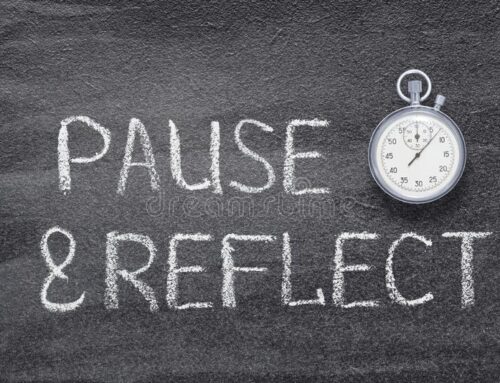Rewire Your Discomfort Trigger
August 18, 2015
Categories: Anxiety
I don’t like feeling discomfort. When I start to feel this way, my tendency is to avoid whatever it is that I think is making me feel uncomfortable. I don’t think I’m alone in that tendency. I observe a lot of people doing a lot of avoiding every day.
There are two problems with this strategy:
- Avoidance doesn’t usually work. We can try to avoid the thing that is causing us discomfort, but it doesn’t usually work. Often the thing we are trying to avoid is a normal part of life, so it keeps coming up again and again. Also, sometimes we avoid something that, by its nature, won’t go away. We have to face it eventually—we’re just delaying the inevitable.
- Avoidance doesn’t help us grow. Even if we succeed in avoiding the thing that is making us uncomfortable, it doesn’t help us grow. Avoidance often keeps us stuck. The best way to grow and develop as a person is to face the thing that makes you uncomfortable.
I had this experience the other day. A friend who is part of a ministry I am involved with asked me to take on a responsibility for the ministry. I didn’t want to commit to it. But I felt uncomfortable saying no to my friend. I felt discomfort about calling him back and saying no, so I avoided doing it. I waited two days before calling him back.
In this situation, avoidance didn’t work. I suppose I could have avoided calling him back forever, but that would have hurt our friendship. In this situation, I had to call my friend back eventually. My avoidance was just delaying the inevitable. Also, avoidance didn’t help me grow. One area of growth for me is being able to be in touch with what I really want, and be able to say my truth assertively. This is something I’m not very good at yet, so it feels uncomfortable. However, avoiding the phone call didn’t help me grow. The growth step was to face my discomfort and call back my friend.
If you have a tendency to avoid the things that cause you discomfort, one thing that might be helpful is to rewire your discomfort trigger. If you are like me, the feeling of discomfort triggers avoidance. I feel uncomfortable, which leads me to try to avoid the thing causing my discomfort. But often this avoidance doesn’t serve us well. So I have been trying to rewire my discomfort trigger. Now when I feel discomfort, I try to see it as a clue that I need to face the thing that is making me feel uncomfortable.
Now when I feel discomfort, I try to go through these three steps:
- Honor the discomfort. I try to tell myself, “Ok, I’m feeling discomfort. Let’s sit with the discomfort for a bit. Let’s not react right away. Let’s see if it has anything to teach me.”
- Identify the source. Next, I try to identify the source of the discomfort. What is it that is making me uncomfortable?
- Step toward it. Finally, I try to step toward the thing that is causing me discomfort, rather than avoid it. What is one step that would help me face the thing that is making me uncomfortable? Then I try to do it.
Action Step: Next time you are feeling discomfort, try to walk yourself through the three steps. See if this helps you to rewire your discomfort trigger. Let me know how it goes.
Related Thoughts
No Comments
Leave A Comment

Subscribe To My Newsletter
Join my mailing list to receive the latest blog posts.
Receive my e-book “The Mental Health Toolkit” for free when you subscribe.






[…] a point where we are “good enough,” and then we stop improving. The reason is that as humans, we like to be comfortable. We don’t continue to push ourselves because that experience is actually quite […]
[…] be hard to give negative feedback effectively. I think part of the difficulty has to do with our discomfort with difficult feelings and emotions. We don’t like feeling uncomfortable, and we don’t like it when other people feel uncomfortable […]
[…] can hold people back from making necessary changes in their lives. We have an innate desire to avoid pain and discomfort. These negative feelings can come up whenever we begin to make a change, and our first tendency […]